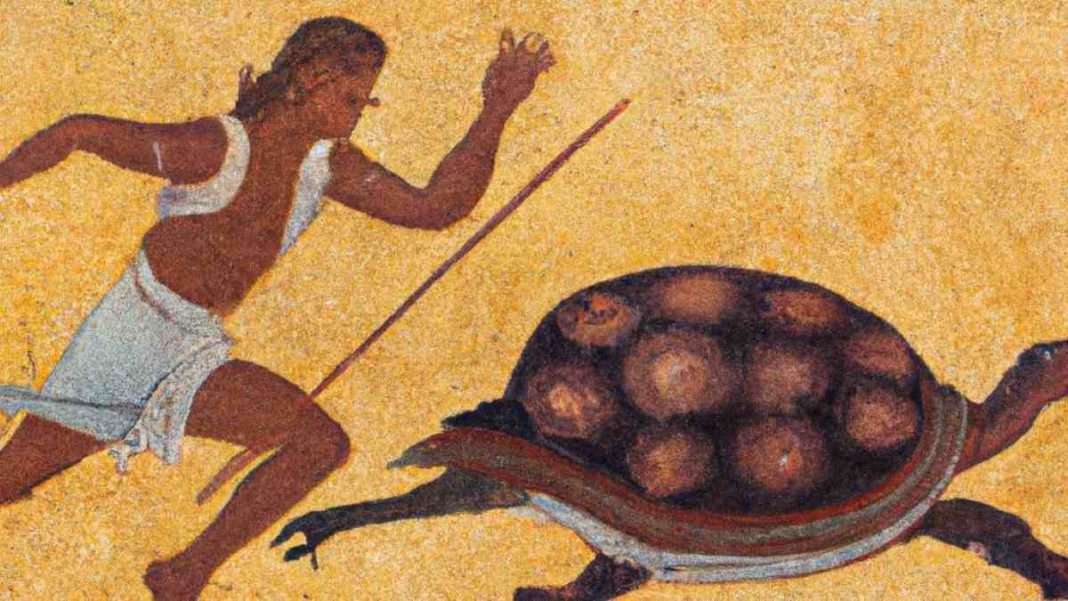INDIA: Among the many perplexing puzzles, the Achilles and the Tortoise Paradox is a prime example of how a seemingly simple scenario can lead to a mind-bending paradox.
In this paradox, the great Greek warrior Achilles, known for his swift feet, races against a tortoise.
However, Achilles gives the tortoise a head start to make the race fair. Despite being faster than the tortoise, Achilles faces a predicament when he tries to overtake the slower creature.
Here’s where the paradox lies: Whenever Achilles reaches the spot from where the tortoise began, the tortoise has already moved ahead, albeit by a small distance.
As Achilles covers this new distance, the tortoise once again inches forward. This process repeats infinitely, suggesting that Achilles can never surpass the tortoise and win the race.
To understand the paradox, one needs to grasp the concept of an infinite series. The paradox arises from the assumption that movement can be divided into an infinite number of steps, each taking a finite amount of time.
According to this reasoning, Achilles must complete an infinite number of steps to reach the tortoise, concluding that he can never overtake it.
However, an examination of the concept of limits can resolve this paradox. As Achilles approaches the spot where the tortoise started, the distance between them becomes infinitesimally small. In mathematical terms, it approaches zero.
Although Achilles might theoretically require an infinite number of steps, in practice, the discrepancy between Achilles and the tortoise becomes negligible, allowing Achilles to catch up and surpass the tortoise.
The Achilles and the Tortoise Paradox highlights the challenges of dealing with concepts of infinity.
The paradox reminds us that mathematical abstractions can lead to counterintuitive and paradoxical conclusions, challenging our conventional understanding of reality.
This famous paradox has fascinated philosophers and mathematicians for centuries. The ancient Greek philosopher Zeno of Elea introduced the paradox and used it to argue against the existence of motion.
The paradox has since sparked numerous debates and inspired various interpretations, contributing to the development of mathematical concepts like calculus and the understanding of limits.
Today, the Achilles and the Tortoise Paradox still captivates and perplexes minds. It serves as a reminder of the intricacies and subtleties within seemingly straightforward problems.
The resolution lies in acknowledging the limitations of our intuitive understanding and embracing the power of mathematical reasoning to navigate the complexities of infinite processes.
While the Achilles and the Tortoise Paradox may challenge our intuition and stretch our minds to their limits, it also invites us to explore the beauty of paradoxes and the depths of human intellectual inquiry.
As we continue to unravel the mysteries of our universe, paradoxes like these serve as reminders of the infinite wonders that lie beyond our grasp.
Also Read: Monty Hall’s Puzzling Paradox: The Mind-Bending Conundrum That Defies Intuition



